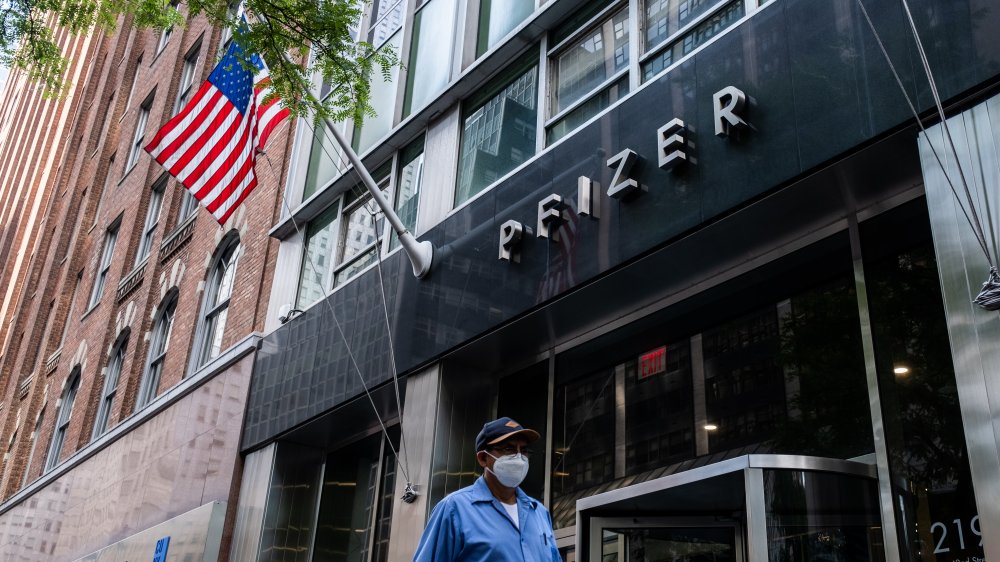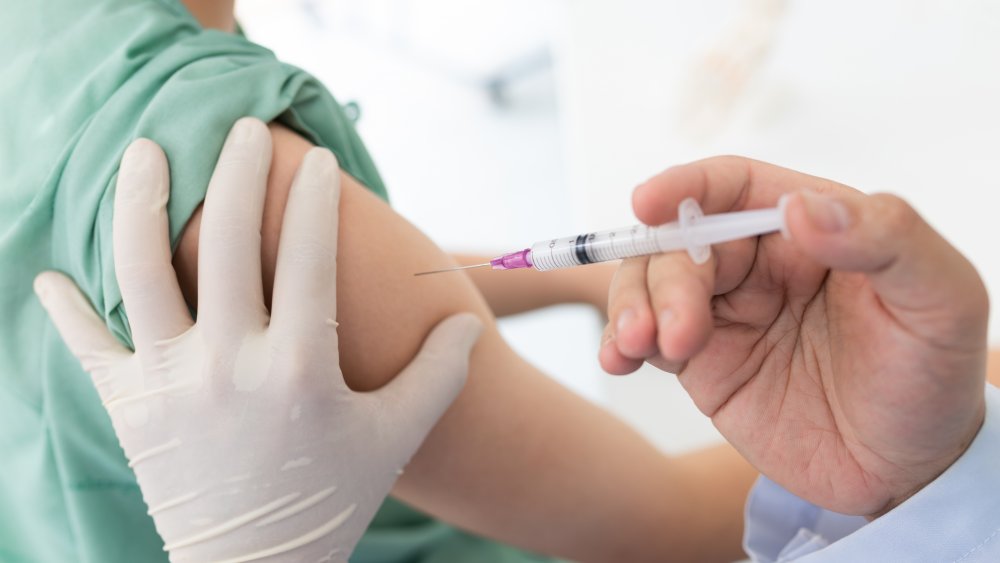The Truth About Pfizer's COVID-19 Vaccine
Drug manufacturers Pfizer of New York City and BioNTech of Mainz, Germany on Monday released results from a trial of a potential COVID-19 vaccine they've been developing, saying it was more than 90 percent effective in preventing the coronavirus (via The New York Times). The companies announced the results in news releases, not a peer-reviewed medical journal, so that percentage could certainly change in the future.
This is certainly promising news, but it's crucial to keep a few things in mind. For example, the trial did involve nearly 44,000 participants, but this early data is based on only around 100 enrollees. Also, there is no information on if this vaccine prevents severe coronavirus cases, if it prevents asymptomatic cases, and there is also no data about how long this protection could potentially last (via Stat).
But if the results hold up, The New York Times says, "That level of protection would put it on par with highly effective childhood vaccines for diseases such as measles."
Pfizer Chairman and CEO Albert Bourla said that the companies are continuing to generate data to show that the vaccine is safe and can be consistently manufactured to meet quality standards. He estimated that a median of two months of safety data following the second and last dose of the potential vaccine will be available this month, after which the company will ask the U.S. Food and Drug Administration to authorize the vaccine's emergency use (via Pfizer). By the end of the year, Pfizer will have manufactured enough doses to immunize 15 to 20 million people.
So far, scientists and clinicians have not observed any serious safety concerns among the study's roughly 44,000 participants, of which 42 percent have "racially and ethnically diverse backgrounds," BioNTech said (via the company website). They will continue to monitor the participants for long-term protection and safety for an additional two years after the second dose, BioNTech said.
Eleven vaccines are in late-stage trials
In a separate letter, Bourla thanked the trial volunteers from Argentina, Brazil, Germany, South Africa, Turkey, and the United States (via Pfizer). "[E]ach of you has helped to bring the world one step closer to our shared goal of a potential vaccine to fight this devastating pandemic," Bourla wrote. "You are the true heroes, and the whole world owes you a tremendous debt of gratitude." Statistics show that since the worldwide coronavirus pandemic began around February, more than 50.5 million people have tested positive for COVID-19, and at least 1.2 million have died, as of this writing (via The New York Times).
Jesse Goodman, a professor of medicine and infectious diseases at Georgetown University in Washington, DC, told The New York Times that actual data and longer-term results were key to proving the vaccine's safety and efficacy. Nevertheless, the announcement is "a testament to hard work and science that we're getting results that are so good and so fast."
Currently, 11 vaccines are in late-stage trials, including four in the United States, The New York Times said. Operation Warp Speed, a federal effort to rush a vaccine to market, promised Pfizer $1.95 billion to deliver 100 million doses of the vaccine for the federal government to distribute to Americans free of charge. However, Kathrin Jansen, Pfizer's senior vice president and the head of vaccine research and development, said that Pfizer has taken no federal money. "We were never part of the Warp Speed," she told The New York Times. "We have always said that science is driving how we conduct ourselves — not politics."


